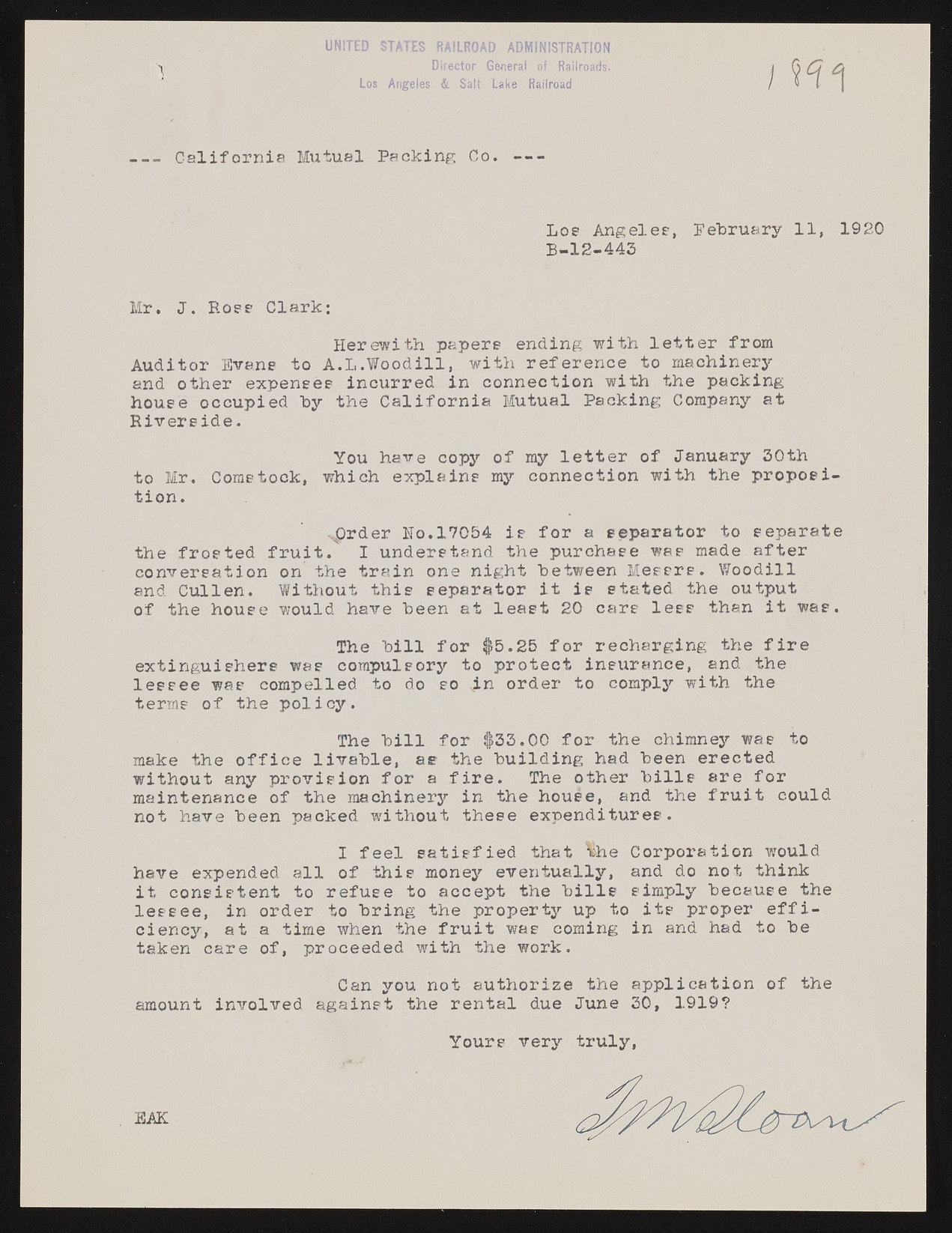Copyright & Fair-use Agreement
UNLV Special Collections provides copies of materials to facilitate private study, scholarship, or research. Material not in the public domain may be used according to fair use of copyrighted materials as defined by copyright law. Please cite us.
Please note that UNLV may not own the copyright to these materials and cannot provide permission to publish or distribute materials when UNLV is not the copyright holder. The user is solely responsible for determining the copyright status of materials and obtaining permission to use material from the copyright holder and for determining whether any permissions relating to any other rights are necessary for the intended use, and for obtaining all required permissions beyond that allowed by fair use.
Read more about our reproduction and use policy.
I agree.Information
Digital ID
Permalink
Details
More Info
Rights
Digital Provenance
Publisher
Transcription
UNITED STATES RAILROAD ADMINISTRATION Director General of Railroads. Los Angeles & Salt Lake Railroad i m ---- California Mutual Packing Co. Los Angeles, February 11, 1920 £-12-443 Mr. J. Ross Clark: Herewith papers ending with letter from Auditor Evans to A.L.Woodill, with reference to machinery and other expenses incurred in connection with the packing house occupied by the California Mutual Packing Company at Riverside. You have copy of my letter of January 30th to Mr. Comstock, which explains my connection with the proposition. -4>rder No.17054 is for a separator to separate the frosted fruit. I understand the purchase was made after conversation on the train one night between Messrs. Woodill and Cullen. Without this separator it is stated the output of the house would have been at least 20 care less than it was. The bill for $5.25 for recharging the fire extinguishers was compulsory to protect insurance, and the lessee was compelled to do so vin order to comply with the terms of the policy. The bill for $33.00 for the chimney was to make the office livable, as the building had been erected without any provision for a fire. The other bills are for maintenance of the machinery in the house, and the fruit could not have been packed without these expenditures. I feel satisfied that ^he Corporation would have expended all of this money eventually, and do not think it consistent to refuse to accept the bills simply because the lessee, in order to bring the property up to its proper efficiency, at a time when the fruit was coming in and had to be taken care of, proceeded with the work. Can you not authorize the application of the amount involved against the rental due June 30, 1919? Yours very truly,

